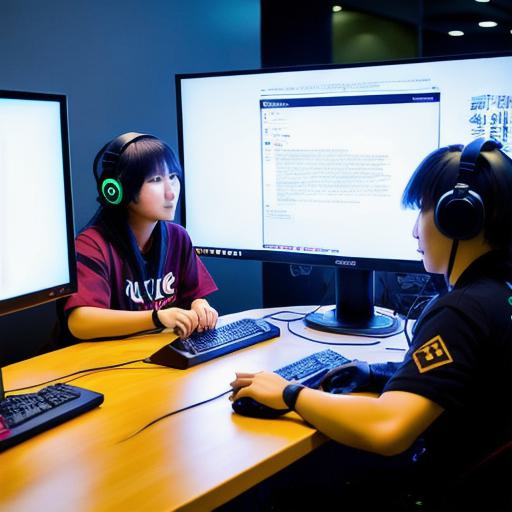South Korea’s gaming industry has grown exponentially in recent years, with the country becoming a major player in both domestic and international markets. This success can be attributed to a combination of factors, including the country’s focus on education and training, advanced technology infrastructure, and government support for the industry.
One of the most important aspects of South Korea’s success in gaming is its commitment to education and training. The country has invested heavily in developing a highly skilled workforce, with many schools and universities offering specialized programs in game development and design. This has resulted in a large pool of talented workers who are able to create cutting-edge games that push the boundaries of what is possible in the medium.
Another key factor contributing to South Korea’s success in gaming is its advanced technology infrastructure. The country has invested heavily in developing its IT infrastructure, with high-speed internet connections and advanced computing technologies available to almost every household. This has allowed game companies to develop games that are highly scalable and able to reach a global audience.
Finally, the South Korean government has been actively supportive of the gaming industry, providing funding and resources to help companies develop new games and expand their operations. The country has also established partnerships with major international players in the industry, such as Nintendo and Sony, which have helped to further legitimize the South Korean gaming market in the global arena.
One of the most successful South Korean game companies is Netmarble, which has developed a number of highly popular games, including Lineage and Clash Royale. The company has been able to achieve this success by focusing on developing innovative and engaging games that are able to capture the attention of players around the world.
Another important player in the South Korean gaming industry is Bluehole Inc., which developed the popular game PUBG (PlayerUnknown’s Battlegrounds). The company was able to achieve rapid success with PUBG by leveraging its extensive experience in developing online multiplayer games and tapping into the growing market for battle royale-style games.

In addition to these major players, there are many other smaller game companies in South Korea that have achieved success in niche markets. For example, Korean indie game studio NexonZetter developed the popular mobile game "Pokémon Go" clone "Monster Strike," which quickly gained popularity among fans of the original game.
Overall, South Korea has emerged as a major player in the gaming industry, thanks to its focus on education and training, advanced technology infrastructure, and strong government support. With its highly skilled workforce and innovative game companies, the country is well positioned to continue its growth and success in the years to come.



